- TOP
- INFORMATION
- What to do in an emergency
What to do in an emergency
Japan is a comparatively safe country, but pick pocketing and theft can occur in crowded places. Sudden accidents and injuries can also happen. The following discusses how to handle such situations.
Be prepared
Before you leave
You can get medicine in Japan, but it is a good idea to bring along any household medicines you may need. Extra peace of mind can be had by enrolling in travel insurance.
During your stay
If you run into any trouble, dial 110 for the police and 119 to request fire or ambulance service. If you get sick, contact the front desk at your hotel, etc. and have arrangements made to get you to the right place. You will also save yourself some hassle by finding out in advance which hospitals have foreign language-speaking staff.
Some tourist centers and lodging facilities, if asked, will provide emergency cards and cards that detail what to do when problems arise (English only).
Useful contact information
110 for police
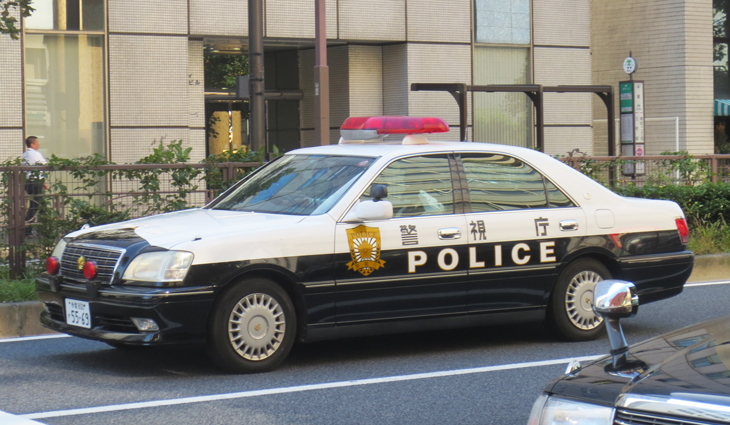
Dial 110 to contact the police in emergencies.
If you cannot speak Japanese or do not know who you should speak with, dial #9110 for general consultation.
119 for fire and ambulance service
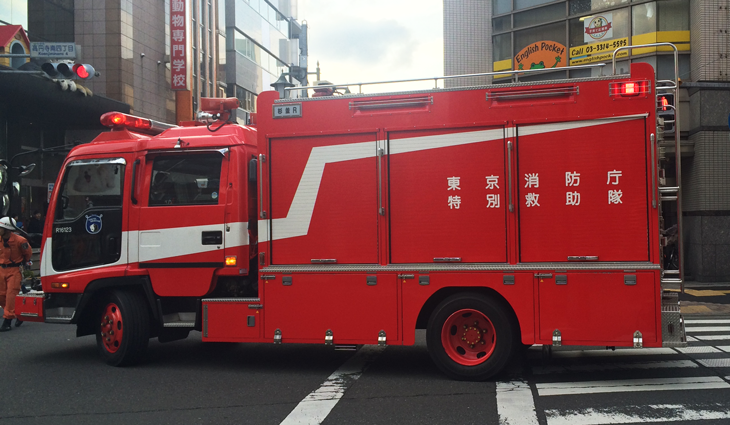
Dial 119 to call for a fire engine if there is a fire or for an ambulance to attend to a sudden illness or accident. Have a nearby Japanese speaker speak for you if you have trouble explaining the situation. The languages spoken by staff differ in each prefecture, so when calling by yourself, try using English first.
Creating a Certificate of Theft or Loss at a police station
Cash
Create and submit a Report of Lost or Stolen Property at a police station. If you drop something somewhere, submit a Lost Property Report.
Airline tickets
To have an airline ticket reissued, you will need a copy of a Report of Lost or Stolen Property submitted to a police station. These can be created by visiting a police station. Once you have a copy, contact the airline and complete the procedures for getting a new ticket issued at the specified counter.
Passports and visas
To have a passport reissued, you will need a copy of a Report of Lost or Stolen Property submitted to a police station. These can be created by visiting a police station. With a copy in hand, complete the process for passport reissuance at a consulate for your country.
Emergency contact for credit cards and travelers check issuers
Credit cards
If a credit card is stolen, immediately contact the credit card company and have a hold placed on the card. Make a note of contact information for the credit card companies in your country. After that, have your card reissued. You will need a copy of your Report of Lost or Stolen Property from a Japanese police department.
Travelers checks
If your travelers checks are stolen, immediately contact the issuer and have them voided. Travelers checks can no longer be obtained while in Japan, so make a note of your travelers check issuer back in your home country. To have travelers checks reissued, you will need a copy of a Report of Lost or Stolen Property from a police station.
Inquiring about lost items
In Japan, lost property is often returned to its owner. Do not get discouraged if you lose something, and make an inquiry if you have the time.
Make a note of where you lost the item (station name, line, train name, etc.), the time it was lost, the item's appearance ( color, shape, size), and anything else you can remember. To retrieve a lost item, you will need to show your passport or other form of identification.
As time goes on, lost items are passed on to different organizations (location where the item was lost --> nearest office --> lost and found center --> police station). Begin by inquiring with the organization closest to where the item was lost.
File a report with the police if you are unsure whether the item was lost or stolen, or do not know where the item was lost. If you notice that you are missing credit or debit cards, have a hold put on them as soon as possible.
Airports
At airports, there are different places to inquire depending on where an item was lost.
Narita Airport
Haneda Airport
Kansai International Airport
Chubu Centrair International Airport
Subways
Inquire at the station where you lost the item or at a general lost and found counter.
Tokyo Metro
Metropolitan subway
Osaka Municipal Transportation Bureau
Trains
When unsure of the station or location where an item was lost, contact the nearest office or lost and found counter.
JR East (services JR lines in and around Tokyo)
English, Korean, and Chinese-speaking staff are available
050-2016-1603(10:00-18:00)
Buses and taxis
Contact the bus or taxi company used. Bus companies can be identified by knowing where you got on or off a bus. Some taxi companies use multilanguage interpreting systems or telephone interpreting services. It is a good idea to get receipts when taking taxis.
When sick
Hospitals with foreign language-speaking staff
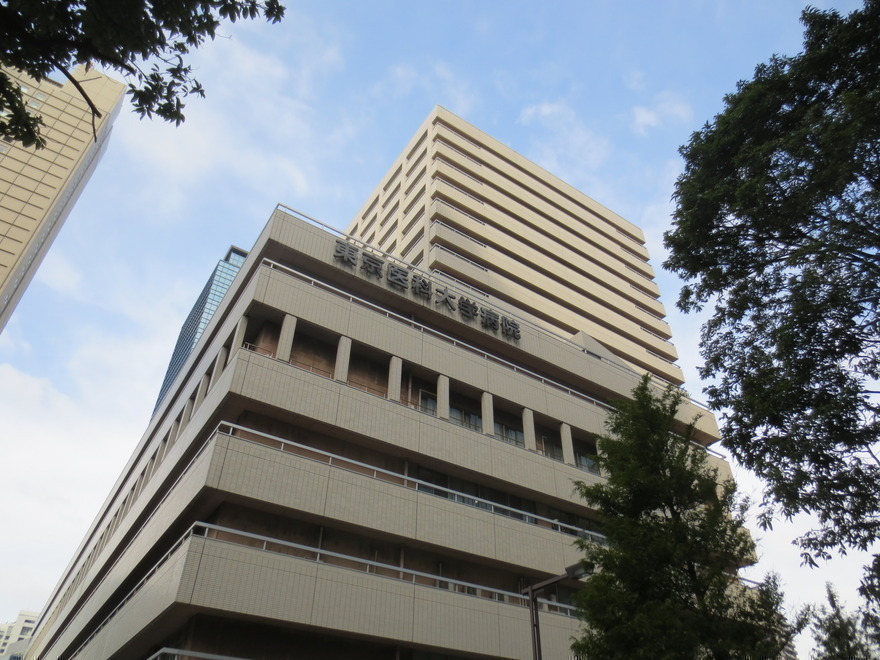
Tokyo metropolitan medical institution information service
This service provides information about hospitals and pharmacies with foreign language-speaking staff, as well as call centers and interpreting services.
AMDA International Medical Information Center
Provides medical consultations in multiple languages. Has a nationwide network.
Hospital Navigation in Japan
Lists organizations that provide information about hospitals with foreign language-speaking staff.
Pharmacies in Japan
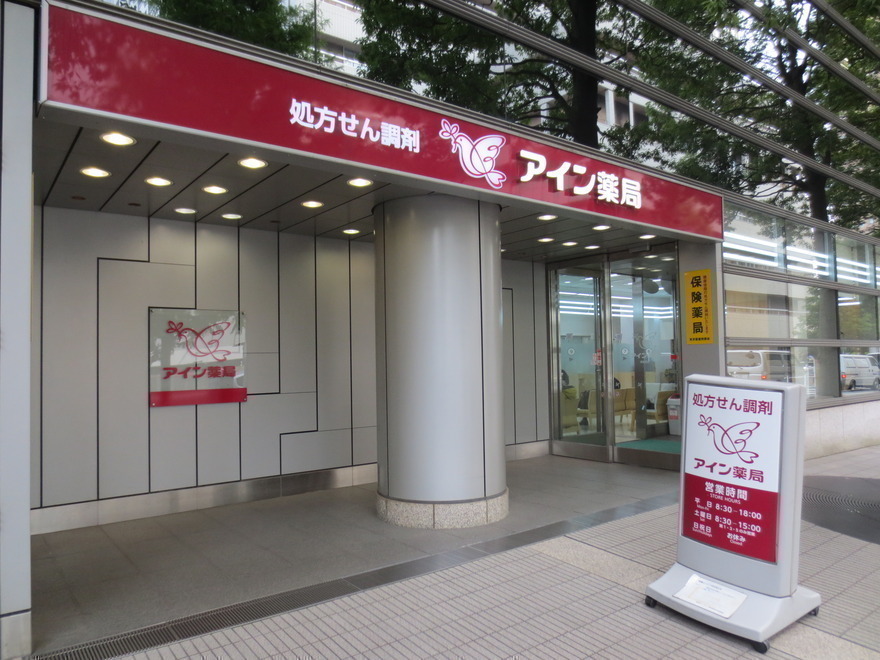
There are two kinds of drugstores in Japan: pharmacies, which sell medicines that require a prescription from a doctor, and drugstores, which sell over-the-counter drugs. Both have full-time pharmacists who can tell you about the drugs they sell.
Drugstores sell such things as bandages, wound dressings, disinfectants, salves, compresses, gastrointestinal medicines, and eyedrops. They also sell cosmetics, beauty products, and health foods.
List of pharmacies with English-speaking staff
Search by area name
Search by station name
Natural disasters
Earthquakes and tsunami
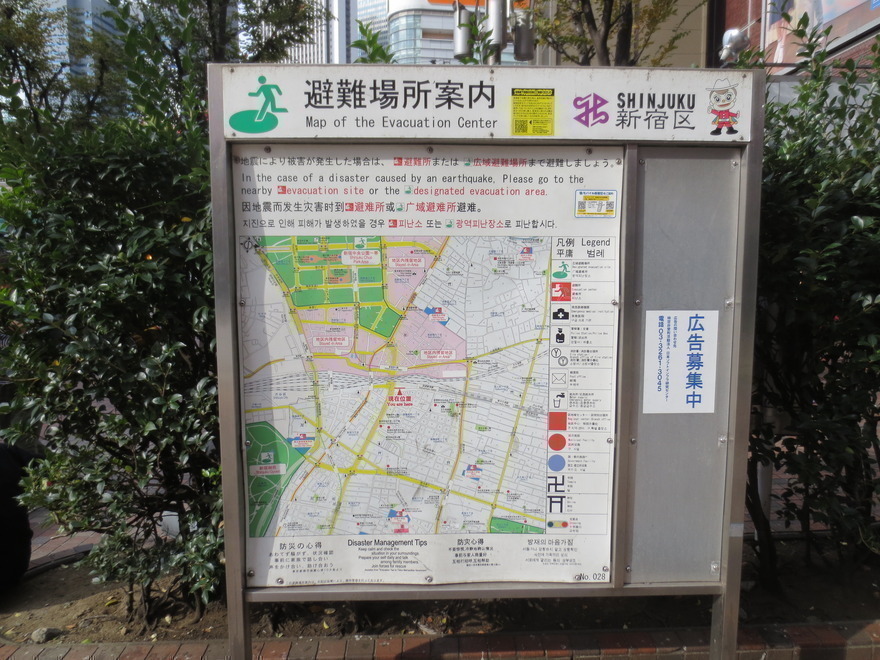
Earthquakes happen several times a year in Japan, and earthquakes with epicenters in the ocean can produce large tsunami. Earthquake warnings are issued for earthquakes with magnitudes of 5 or above.
Earthquake warnings are preliminary reports that give estimates of earthquake size. They are not always accurate, and large earthquakes do not always follow such warnings. If an earthquake occurs somewhere near you, you may feel the shaking before a warning comes in. Protect your head and otherwise see to your safety if you feel an earthquake.
As tsunami may also occur, avoid approaching coasts or rivers when warnings are given and immediately evacuate to a high-elevation area if you are nearby such places.
Many shinkansen and other such means of transportation have emergency braking systems that activate when they detect earthquakes with magnitudes of 4 or greater. In such cases, wait for an all clear to be given and follow evacuation instructions.
With large earthquakes, tremors called aftershocks can continue to occur for several days. Buildings in Japan are resistant to earthquakes, so you will be safe if you evacuate to a safe and sturdy building.
Additionally, every area has an earthquake shelter for extremely large earthquakes. Non-Japanese are also admitted, so head to one if such an earthquake occurs.
Japanese people are likely used to earthquakes stronger than you have ever experienced. If the Japanese people around you are still calm, remain calm yourself and get more information. The Japan Meteorological Agency also sends out information in English.
Broadcasts and apps providing information about earthquakes and tsunami
Japanese TV and radio programs always issue earthquake alerts and report on any damage done. In emergencies, reports are also sent out over the Internet. These reports are also broadcast in English and are a good way to stay updated if you can receive them.
In addition, the Japan Tourism Agency has developed an app that provides earthquake early warnings and tsunami alerts for people visiting Japan.
Google Play
App Store
Typhoons and heavy rain
Japan gets a lot of rain, and the rain and wind from typhoons can cause damage, especially from those occurring between summer and fall. In late spring and early fall, heavy rain will often fall in concentrated areas, accompanied by lightning and strong gusts of wind (even tornadoes).
When the low-pressure systems that build up pass through an area, they can create destructively strong winds.
When the Meteorological Agency issues rain, wind, or flood alerts, transportation systems are shut down. In such situations, follow the rules established by local governments, including how and where to evacuate.
Volcanic eruptions
Japan is a land of numerous volcanoes. Nearby almost every hot springs site is a volcano, and many mountains are demonstrating eruptive activity. Even if a mountain is not erupting at the moment, sudden eruptions could happen. When one does, eruption bulletins and restrictions on mountain travel are issued.
When traveling to such areas for mountain climbing or sightseeing, always follow any information concerning volcanoes posted at stations and major facilities in the area.
Snowfall
Although areas such as Hokkaido, Tohoku, and Hokuriku receive the heaviest snowfall in Japan, other areas also get snow from January through March. Areas where it rarely snows have poor infrastructure for handling snowfall, and even a few inches of snow can cause transportation systems to be shut down and many people to be injured from falls and other accidents.
Traffic can come to a standstill even in areas with daily snowfall. Here, several dozen inches to even several feet of snow can fall in a single day, or continue to fall over several days, damaging facilities and causing disasters. When traveling in Japan in the winter, you will need to pay attention to snowfall reports.
Japanese for emergency situations
Help ! (TASUKETE !)
- Romanization: Tasukete
- Pronunciation: tah-sue-keh-tay
- Used when in trouble during your travels or when asking someone for help. A very serious word, it's best not to use it lightly.
Police! (KEISATSU !)
- Romanization: Keisatsu
- Pronunciation: Kay-sah-tsu
- Best used in very urgent situations.
My wallet was stolen. (SAIFU WO NUSUMAREMASHITA)
- Romanization: saifu wo nusumaremashita.
- Pronunciation: sai-fu oh nu-sue-mah-reh-mah-she-tah
- Provide detailed information about when and where the theft occurred, information about the thief, and the color and shape of your wallet. If explaining in Japanese is difficult, search for a similar wallet on the Internet and show the picture to the police.
I lost my passport. (PASUPOTO WO NAKUSHIMASHITA)
- Romanization: pasupoto wo nakushimashita.
- Pronunciation: pah-sue-poh-to oh nah-ku-she-mah-she-ta.
- If you lose your passport, first contact your embassy and follow their instructions.
Where are the police? (KEISATSU WA DOKO DESU KA?)
- Romanization: keisatsu wa doko desu ka?
- Pronunciation: kay-sah-tsu wah doh-koh deh-sue kah?
- Japanese police can be found at small police "boxes" called koban and at large police departments in the middle of cities and towns. First get directions to the nearest police station and tell the staff where you are from, what language you speak, and what happened. They will direct you to a police station with foreign-language speaking staff and give information about necessary procedures.
Call an ambulance! (KYUUKYUUSHA !)
- Romanization: Kyuukyuusha!
- Pronunciation: kew-kew-sha!
- Used when someone has been seriously injured such as in a traffic accident or fire or is seriously ill.
I have a fever. (NETSU GA ARIMASU.)
- Romanization: netsu ga arimasu.
- Pronunciation: neh-tsu gah ah-ri-mah-sue
- Used at doctor's offices, hospitals, etc. when you have a high fever or feel ill. Hotels and other such places will lend you a thermometer.
My head/stomach hurts. (ATAMA / ONAKA GA ITAI DESU.)
- Romanization: atama / onaka ga itai desu.
- Pronunciation: ah-tah-mah / oh-nah-kah gah ee-tie deh-sue
- It may be unwise to move in certain situations, so do not be afraid to call out for help.
Where is a hospital? (BYOIN WA DOKO DESU KA?)
- Romanization: byouin wa doko desu ka?
- Pronunciation: byoh-een wah doh-koh deh-sue kah
- If you are unable to speak Japanese, ask for directions to a large hospital (ookii byouin).
I'm hurt. (KEGA WO SHIMASHITA.)
- Romanization: kega wo shimashita.
- Pronunciation: keh-gah wo she-mah-she-tah
- In Japan, some hospitals cater to those who are sick while others tend to those who are injured. If you are injured, make that fact clear. Try to convey exactly when and how you were injured to receive proper treatment.
I don't feel well. (KIBUN GA WARUI DESU.)
- Romanization: kibun ga warui desu.
- Pronunciation: key-boon gah wah-ru-ee deh-sue
- If you feel unwell, immediately tell someone.
There is someone who's sick. (BYOKI NO HITO GA IMASU.)
- Romanization: byouki no hito ga imasu.
- Pronunciation: byoh-key noh he-toh gah ee-mah-sue
- Used when someone you are traveling with feels unwell and cannot describe the symptoms himself/herself.
My child is sick. (KODOMO GA BYOKI DESU.)
- Romanization: kodomo ga byouki desu.
- Pronunciation: koh-doh-moh gah byoh-key deh-sue.
- When a child is sick in Japan, people take them to a pediatrician. Some ordinary hospitals that practice internal medicine are unable to see sick children, so explain beforehand that it is a child that is sick so you will be directed to the proper clinic or hospital.
Tourist information centers
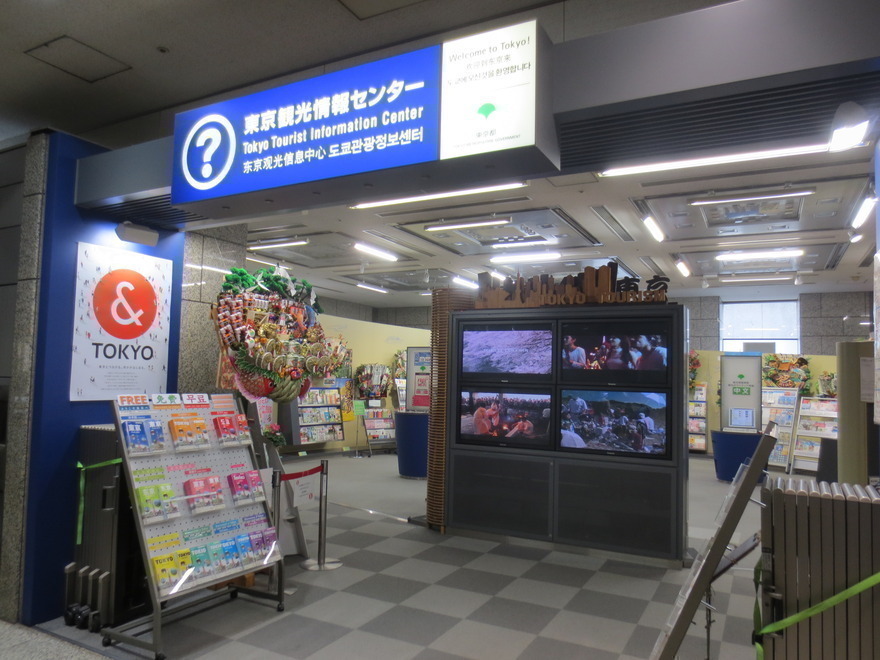
JNTO
In addition to providing sightseeing information for foreign tourists visiting Japan, the Japan National Tourism Organization (JNTO) offers a variety of helpful information including what to do in emergencies available at their portal site.
Tokyo Metropolitan Government
Informational site run by the Tokyo Metropolitan Government (English, simplified Chinese, Korean)
Kyoto City
Kyoto City Official Travel Guide (provided in 13 languages)
Hokkaido
Hakodate Tourist Information Center
Asahikawa Tourism & Local Products Information Center
RUSUTSU Foreign Tourist Information Office
Otaru International Information Center(Canal Plaza Tourist Information)
Aomori
Aomori Tourist Information Center
Iwate
Iwate/Morioka regional Tourist Information Center
Hiraizumi Tourist Information
Miyagi
Sendai International Center Koryu Corner
Akita
Akita City Tourist Board Information Center
Yamagata
Yamagata Tourism Information Center
Fukushima
Fukushima City Tourist Information Center
Tochigi
TOBU Nikko station Tourist Information Center
Gumma
Minakami Tourist Association
Takasaki Tourist Information Center
Saitama
Kawagoe City Tourist Information Office
CHICHIBU Tourism Information Center
Chiba
Narita Tourist Pavilion
Tokyo
TIC TOKYO
Akihabara Tourist Information Center
Ginza Tourist Information
TOBU Sightseeing Service Center
Odakyu Sightseeing Service Center Shinjuku
DiverCity Tokyo Plaza Information Desk
Kanagawa
Yokohama Station Tourist Information Center
KAMAKURA Tourist Information Service
Odakyu Sightseeing Service Center Odawara
Hakone Total Tourist Information Center
Yamanashi
Mt. Fuji Information
Fujikawaguchiko Tourist Information
Niigata
Echigo-Yuzawa Tourist Information Center
Toyama
Toyama Tourist Information Center
GOKAYAMA TOURIST INFORMATION CENTER
Kurobe City Tourist Information Center
Ishikawa
Kanazawa Station Tourist Information Center
Fukui
Fukui City Tourism Development Office
Nagano
Nagano City Tourist Information Center
Gifu
Hida Takayama Tourist Information Office
TAKAYAMA NOHI BUS CENTER
Shizuoka
Shin-Fuji Station Tourist Information Center
Shizuoka Prefecture Tourism Association
Aichi
Nagoya Station Tourist Information Center
Central Japan Travel Center
Mie
Ise Tourist Information (Iseshi Station)
Ise tourist information (Gekumae)
Shiga
Otsu Station Visitor's Information Center
Kyoto
Kyoto Tourist Information Center
Kyoto Station Tourist Information Center
Tango Tourist Information Center (Amanohashidate Tourist )
Osaka
Osaka Visitors' Information Center Umeda
KANSAI TOURIST INFORMATION CENTER KANSAI INTERNATIONAL
KANSAI TOURIST INFORMATION CENTER SHINSAIBASHI
Hyogo
Arima Hot Spring Tourist Information Center
Himeji Tourist Information Center
Nara
NARA PREFECTUAL TOURIST INFORMATION CENTER
Wakayama
TIC WAKAYAMA
Koyasan Shukubo Association
Tottori
Tottori City International Tourist Support Center
Shimane
Adachi Museum of Art International Tourist Information Desk
Okayama
Tourism Association of Tsuwano
Momotaro Tourist Information Center
Hiroshima
Hiroshima City Tourist Information Center (JR Hiroshima Station・Shinkansen Side)
Miyajima Tourist Information
Yamaguchi
Hagi Tourist Bureau
Tokushima
Tokushima Prefectural International Exchange Association (TOPIA)
Kagawa
KAGAWA TOURIST INFORMATION CENTER
Michi-no-Eki Shodoshima Olive Park
Ehime
Dogo Information
Ehime Prefectural International Center (EPIC)
Kochi
Kochi Prefecture 「i」 Information Office
Fukuoka
Fukuoka Tourist Information Center (ACROS)
Fukuoka Airport Information
Fukuoka City Tourist Information (Hakata station General Information )
Hakata Port International Terminal Information Center
Nagasaki
Nagasaki Airport Information Desk
Saga
Saga City Tourist Information Center
Kumamoto
JR Kumamoto Station Tourist Information
Aso Kumamoto Airport Information Counter
Oita
Beppu Foreign Tourist Office
Miyazaki
Miyazaki City Tourist Information Center
Kagoshima
Kagoshima Prefectural Visitors Bureau
KAGOSHIMA AIRPORT INFORMATION
Okinawa
Naha Airport Information
Hirata Kanko
THIS ARTICLE IS BASED ON INFORMATION FROM 01 06,2016








